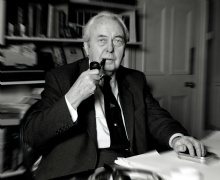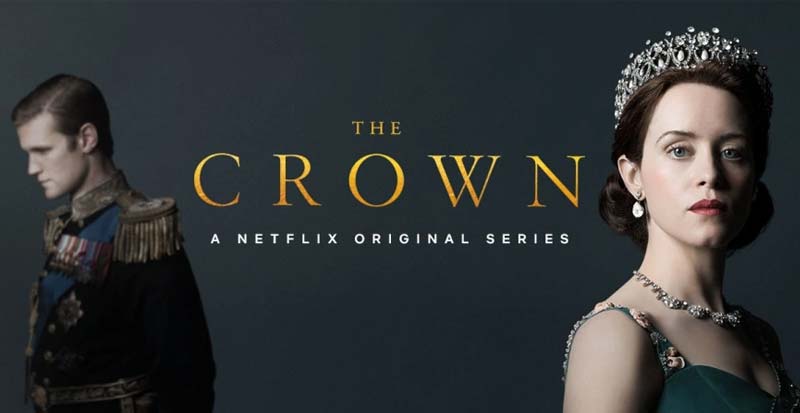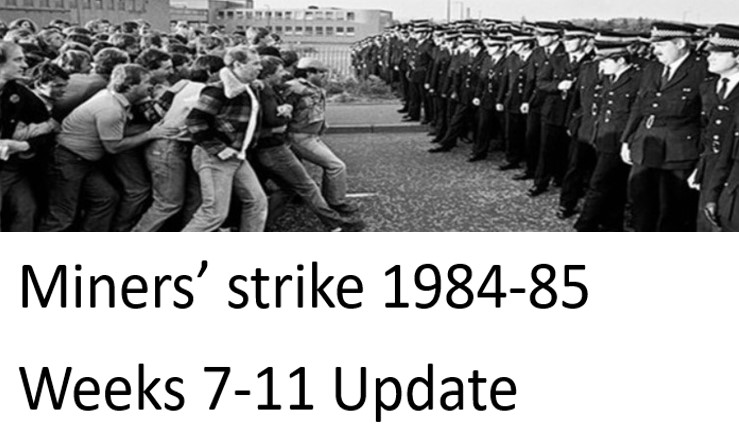By Mark Langabeer (Hastings and Rye Labour member)
This Netflix drama series, The Crown, gives a historical account of the royal family from the last days of King George VI’s reign, and that of Queen Elizabeth II, until the early 90s. A new series starts on the 9 November (see here) for those who are Netflix customers.
I’m reviewing this drama because it has come under attack from sections of the press and, in particular, from Dame Judi Dench. They claim that aspects of the programme are very historically inaccurate, and that some scenes shown, especially the private ones, never happened. To be fair, the programme makers are clear that it is a fictional drama which only claims to be ‘based’ on true events. Who can really know how true to life it really is?
I have never seen a drama that involves so many of the greatest British actors of our times. It must have been expensive to produce. By all accounts, it’s been a huge success and, in my opinion, a drama that readers of Left Horizons should watch. The only downside to the series was its length.
I liked the programme because it exposed the venal nature of the Establishment. What is the establishment? In my opinion, it’s the Tories, royals, the heads of the judiciary, civil service, armed services, police forces, the press, TV etc. They are all hell bent on preserving a system that is based on exploiting the working class, a system based on private ownership, which maintains power and privileges for a small minority within society. However, they do not necessarily speak with one voice and divisions can open up. As the saying goes, the wind blows the tops of the trees first.
They believe that they are born to rule. They are normally educated in private schools which brag about the number of former Prime Ministers that attended institutions like Eton or Harrow. The Crown reveals the true nature of the establishment. Born to rule? They’re not fit to wipe my arse!
Stupidity
One of stories in The Crown was the reaction to the smog during the 1950s. The Tories were returned to office under the leadership of Churchill. This guy is frequently regarded by the establishment as Britain’s greatest leader in modern times. His reaction to the smog of 1952 revealed his stupidity and opportunism. Smog was a combination of thick fog and the fumes from coal fires. London was particularly affected. A cabinet member (Lord Salisbury) reported that Battersea Power Station was emitting toxins that were causing premature death and illness. He suggested a public enquiry.

Churchill’s response was that it’s an act of God. The weather would change and all will be well. Like during Covid, hospitals were becoming overwhelmed with people with respiratory illnesses. When pressed by Salisbury, Churchill banged his hands on the table and stated ‘ enough ‘, we should be discussing matters of national importance. When asked what was more important, he replied, the Duke of Edinburgh (Prince Phillip) had taken up flying lessons. The other obvious problem with smog was the increase in road traffic accidents (RTA). According to The Crown, Churchill ‘s own secretary was killed in an RTA. Churchill announced a public enquiry and more resources to the health service.
The Labour leader, Attlee was forewarned about the situation by a civil servant but failed to act on the matter. The Met Office had sent a warning to the government. Attlee’s response was to question the civil servant’s motives as the fog had yet to appear. He failed to take the opportunity of exposing Churchill ‘s stupidity.
The Suez Crisis in 1956 was another example of the short-sightedness of those that are born to rule. Prince Phillip belonged to a group called the ‘Thursday Lunch Club’, which was mainly young members of the upper classes. It was a place where they got pissed, letching after young women, but it did have some educational role, albeit a false one. They felt Nasser’s decision to nationalise the Suez Canal would fail because the Egyptians would be unable to pilot ships through the Canal. If you believe the Crown programme, Prince Phillip stated that piloting ships through the canal required seven years of training. Unfortunately, for Phillip and his cronies, the Soviet Union were ready to give the Egyptians a lending hand.
Suez
It’s common knowledge that Eden, Churchill’s chosen successor, had lied to Parliament and to the nation about colluding with Israel and the French about the Suez campaign. An invasion force was sent which was militarily successful, but proved a political disaster. They hadn’t informed the Americans, who opposed the intervention. What’s probably not so well known is that Macmillan, Eden’s successor who led the call for his resignation, was also supportive of intervention. Eden accused Macmillan of lying at a cabinet meeting when it was suggested that he should resign on grounds of ill-health – one liar to another.
The next scandal was the Profumo sex-and-spying affair in the early 1960’s. Macmillan gave support to Profumo, a government minister, and discovered that he was also a liar. The programme suggest that Prince Phillip attended a party organised by a friend of Profumo. There were the odd omissions from the drama. Much of The Crown is about the weekly meetings between the Queen and the various prime ministers. Macmillan resigned over the Profumo affair and was replaced by Sir Alex Douglas Hume, but he doesn’t get a mention.
In 1964, and again in 66, Labour was elected and things were about to get interesting. Louis Mountbatten, the uncle of Prince Philip, was Chief of the Armed Forces and was sacked. It was part of a programme of defence cuts. Britain spent far more on defence than many other nations. After the devaluation of the pound sterling in 1968, a number of influential people, including the proprietor of the Mirror newspaper, met to discuss the removal of Labour.
They enlisted Mountbatten, who stated that a coup would only succeed if it had the support of the crown. He stated that the armed forces owed its allegiance to the crown, not to Parliament. Under the 1920 Emergency Powers Act, the monarch can dismiss the government and replace it with another. Mountbatten stated that he would seek an audience with the Queen. Harold Wilson rang the Queen and warned that there would be severe consequences for the monarchy, should a coup attempt be made. The Queen told Wilson that she would deal with this. She called in ‘Dickie’ (Mountbatten) and gave him a telling off. She stated that we live in a democracy and only through an election can one government be replaced by another.
Warning to the labour movement
This episode should serve as a warning to the labour movement. This incident happened during the height of the post WW2 boom. The Crown never explained how Wilson knew about an attempted coup. In my opinion, he was tipped off by MI5 or by one of the plotters’ guests. The majority of the establishment were against this idea. However, it was timing rather than principle which guided their thoughts.

Strangely, the Queen got on with Wilson. When he told her that he had been diagnosed with dementia and was tendering his resignation, the Queen offered a private lunch with Wilson and his wife. For some reason, the series did not cover any of the subsequent Callaghan years, or the ‘winter of discontent’.
There was plenty on the Thatcher years. It was the one and only time where the Queen allegedly departed from public impartiality – Thatcher’s opposition to sanctions on the apartheid regime in South Africa. The Queen feared that opposition to sanctions would result in the breaking up of the Commonwealth, the last vestige of influence on the world stage for the British Monarchy. The Queen and her advisors are said to have requested that the press team should leak a criticism of Thatcher. The Head of the Press department thought that it would be a mistake but was overruled. He proved to be right. It backfired and the Palace required a scapegoat. You guessed; the head of the Press office got the bullet.
The Crown never mentions the great miners’ strike in 84/85. Although it did cover the strike in 72. Heath got told off because he informed the Queen that they would defeat the miners because there was eight weeks-worth of coal stocks. The next weekly meeting was held under candlelight and the Queen suggested that compromise should be found. One of the amusing parts of the programme was the revelation of the Queen’s buzzer, which signalled to staff that the meeting was finished and the Prime Ministers would depart. The buzzer was operated by the Queen herself and she determined the duration of the meeting.
I could write an extended essay on the affairs and marriage bust ups of the Royals, but they are already in the public domain. Elizabeth II was praised by the establishment because she put her ‘duty’ first, but this duty didn’t do her family any favours. In his youth, Prince Charles amusingly described the senior Royals as the ‘Politbureau’. They would decide who their children married, and when. They were supported by advisors who were representing the general interests of the establishment.
It’s often stated that the Royal family is dysfunctional. In reality, it’s the institution itself that’s dysfunctional. It’s based on privilege and inheritance. It’s dysfunctional because the institution is profoundly undemocratic and the Labour Movement must campaign for its abolition.



